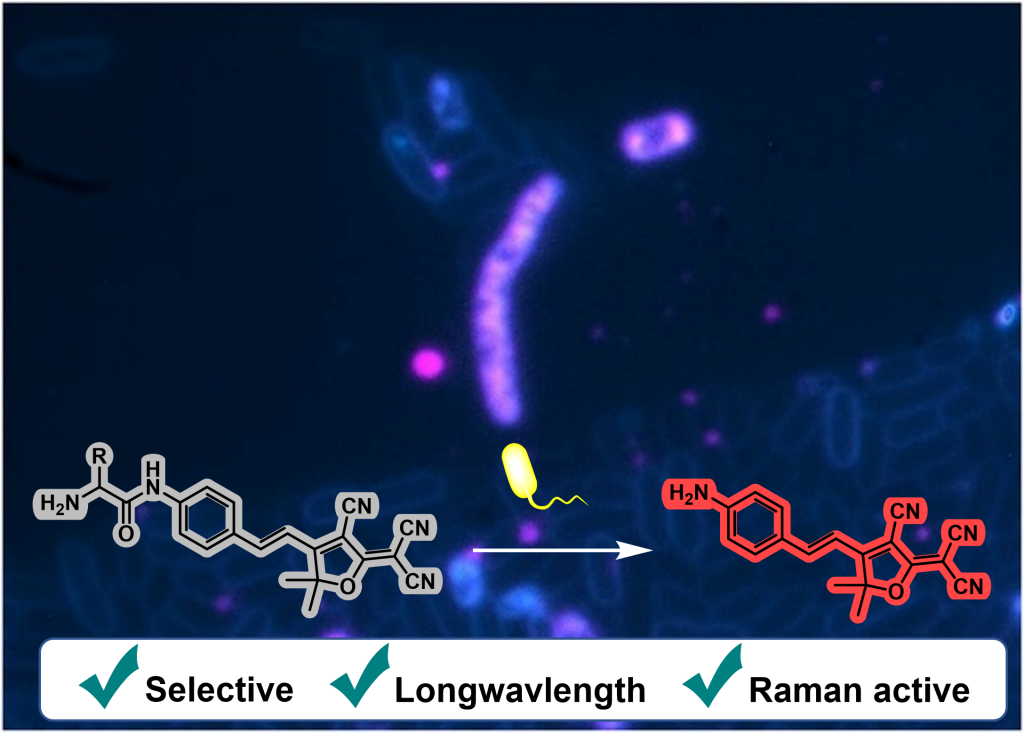Project No. 2480
STANDARD PROJECT
Primary Supervisor
Dr George Williams – University of Southampton
Co-Supervisor(s)
Dr Becky Hall – University of Kent
Dr Sumeet Mahajan – University of Southampton
Dr Callum Highmore – University of Southampton
Prof Jeremy Webb – University of Southampton
Summary
Identification of microbes is essential for efficient treatment.
However mixed species biofilms complicate this considerably. Fluorescent probes are one such tool towards the detection and differentiation of bacterial species and strains, however, single probe systems often display poor selectivity, as their targets are often conserved across different species and strains. Aminopeptidases catalyse the cleavage of amino acids from the amino terminus of a peptide or protein. These enzymes are differentially expressed depending on the microbial species, and are of particular relevance to the virulence of Pseudomonas aeruginosa, suggesting that the aminopeptidase signature may be useful for identifying species present in polymicrobial communities. This project encompasses the synthesis of a suite of aminopeptidase sensitive probes which upon activation emit fluorescence and undergo a ratiometric change in Raman signal, which can easily be detected. By using high-throughput assays to characterise the how different species interact with these probes or probe-combinations, we will be able to define species-specific signatures. Then, by combining these probes with lightsheet microscopy and 3D Raman imaging, the spatiotemporal distribution of individual microbial species within a mixed species biofilm can be examined with cellular resolution. This technique can then be used to investigate the response of mixed species biofilms to specific environments and antimicrobials, to develop our understanding of effective antimicrobial use. With these techniques established, the student will spend a month at the University of Kent where the scope of the mixed species biofilms will be extended to include Candida spp., and investigate the spatiotemporal distribution of species. As well as a tool to study microbial biofilms, this suite of probes will be investigated to provide a rapid diagnostic tool to identify infectious species. An ideal candidate would have a background in microbiology/microscopy, and a willingness to learn organic synthesis. Alternatively, a chemist willing to learn microbiology would also be suitable.

